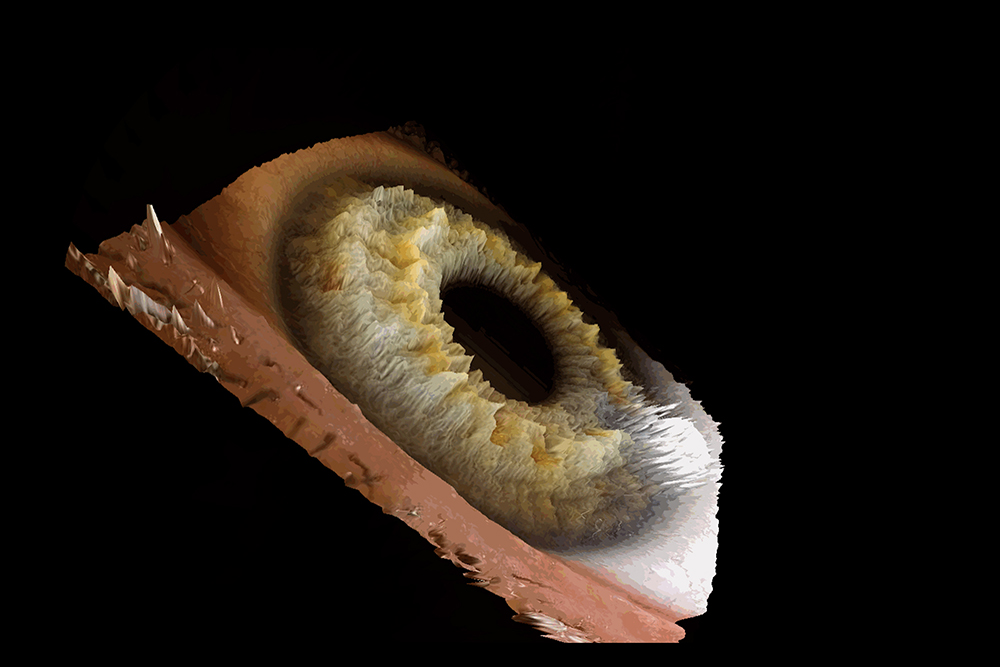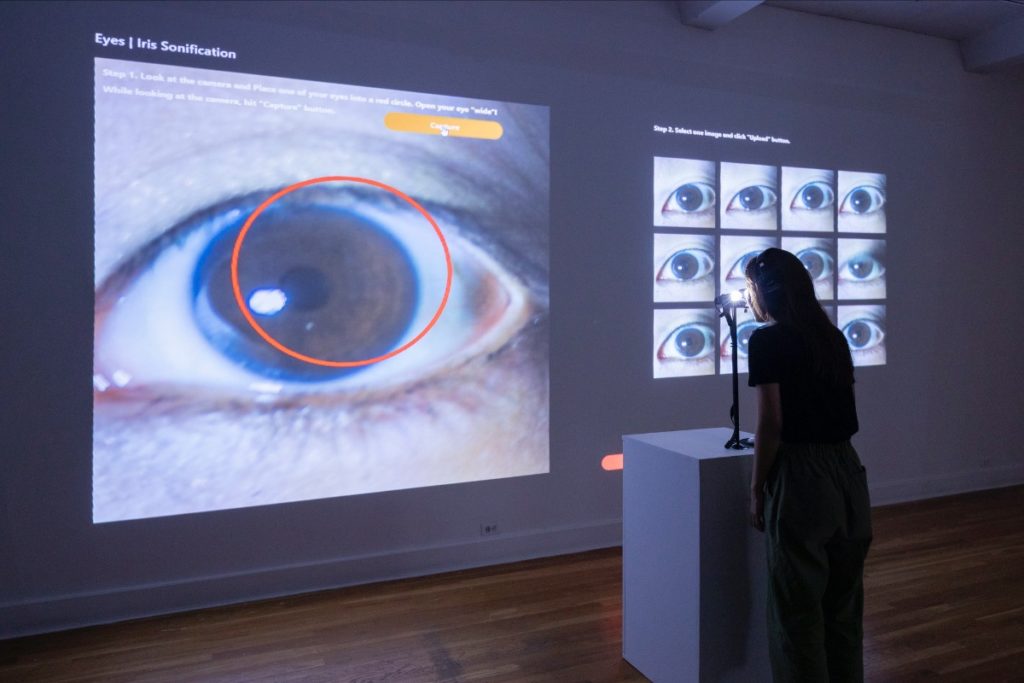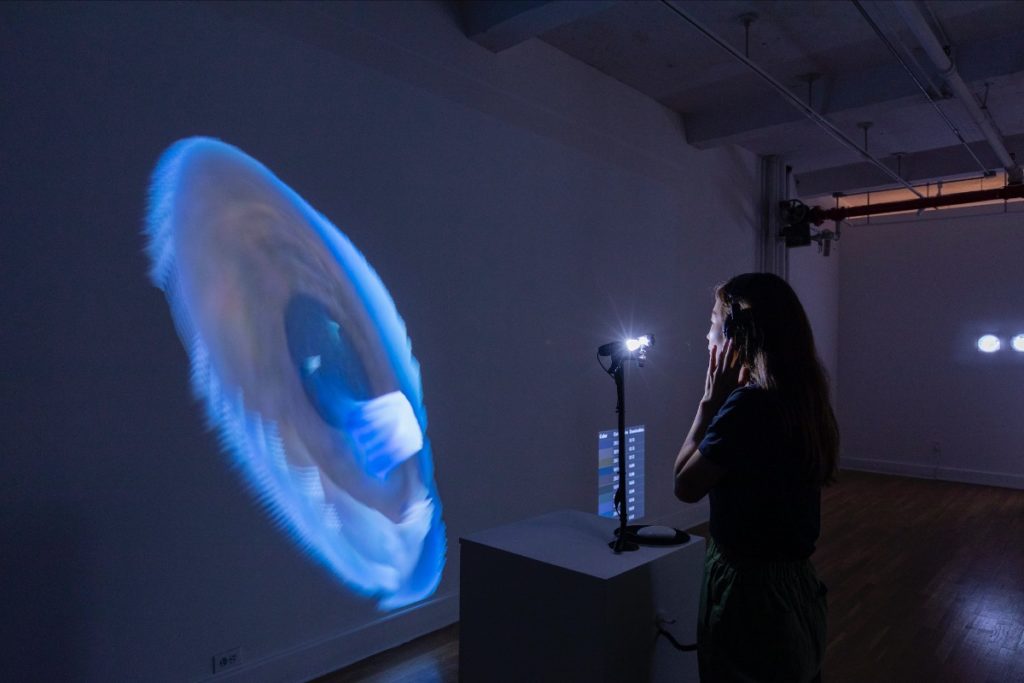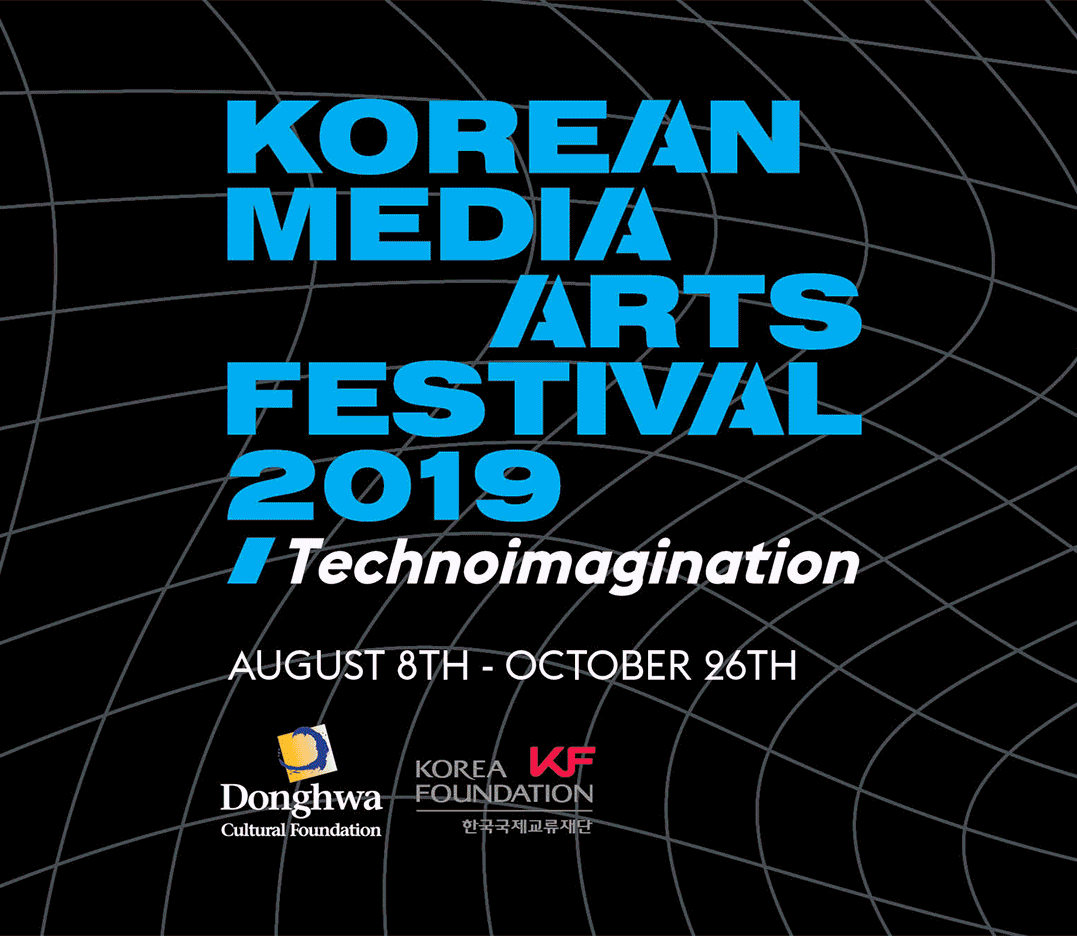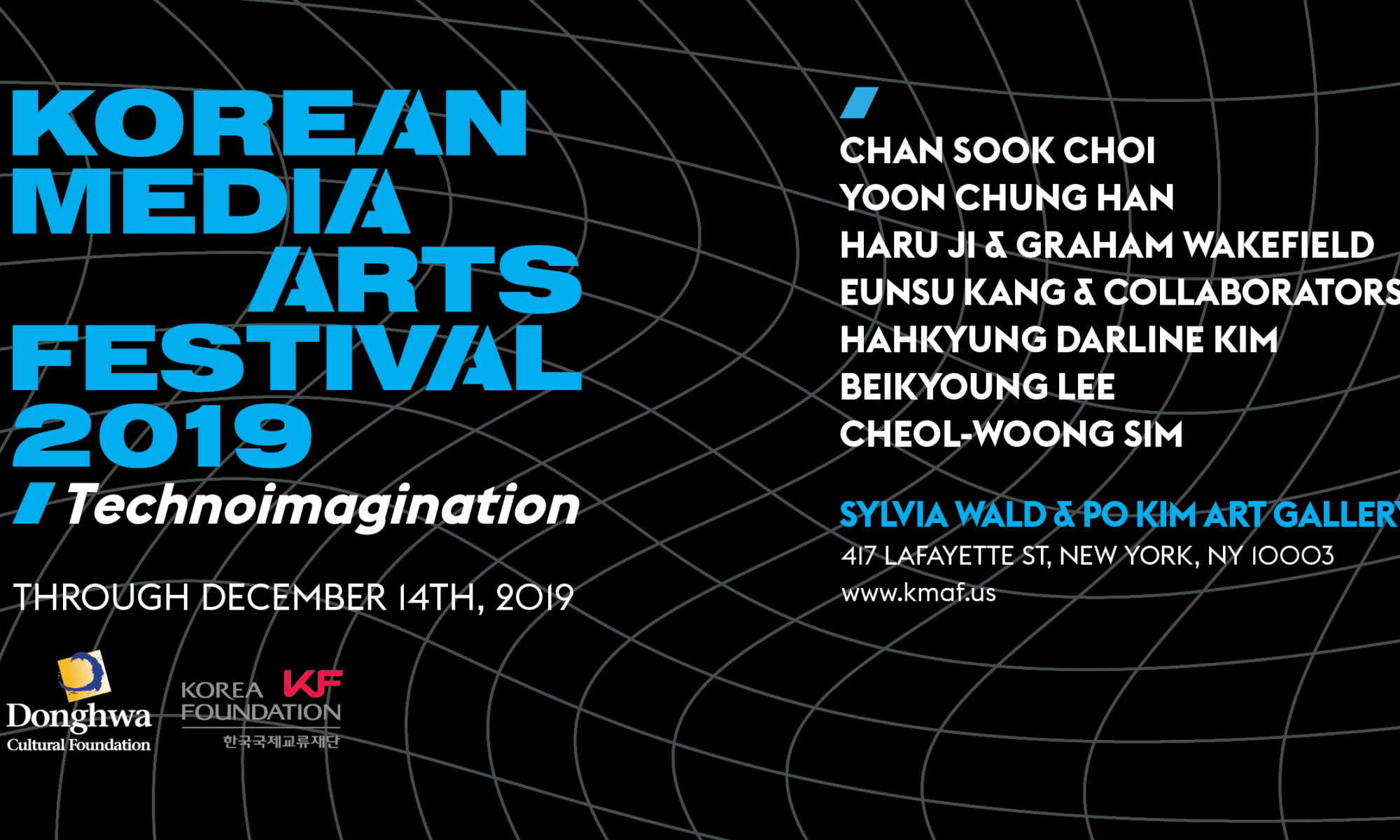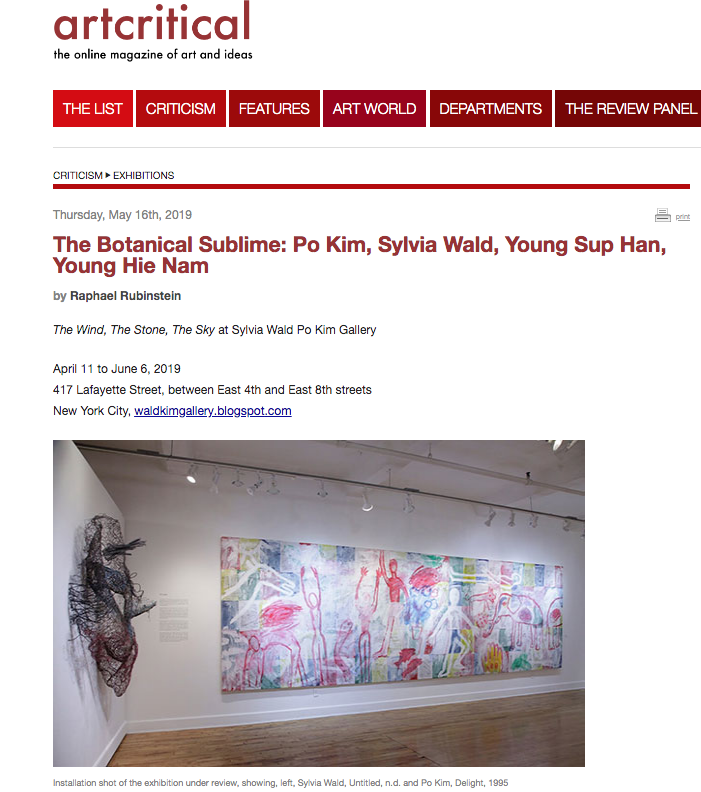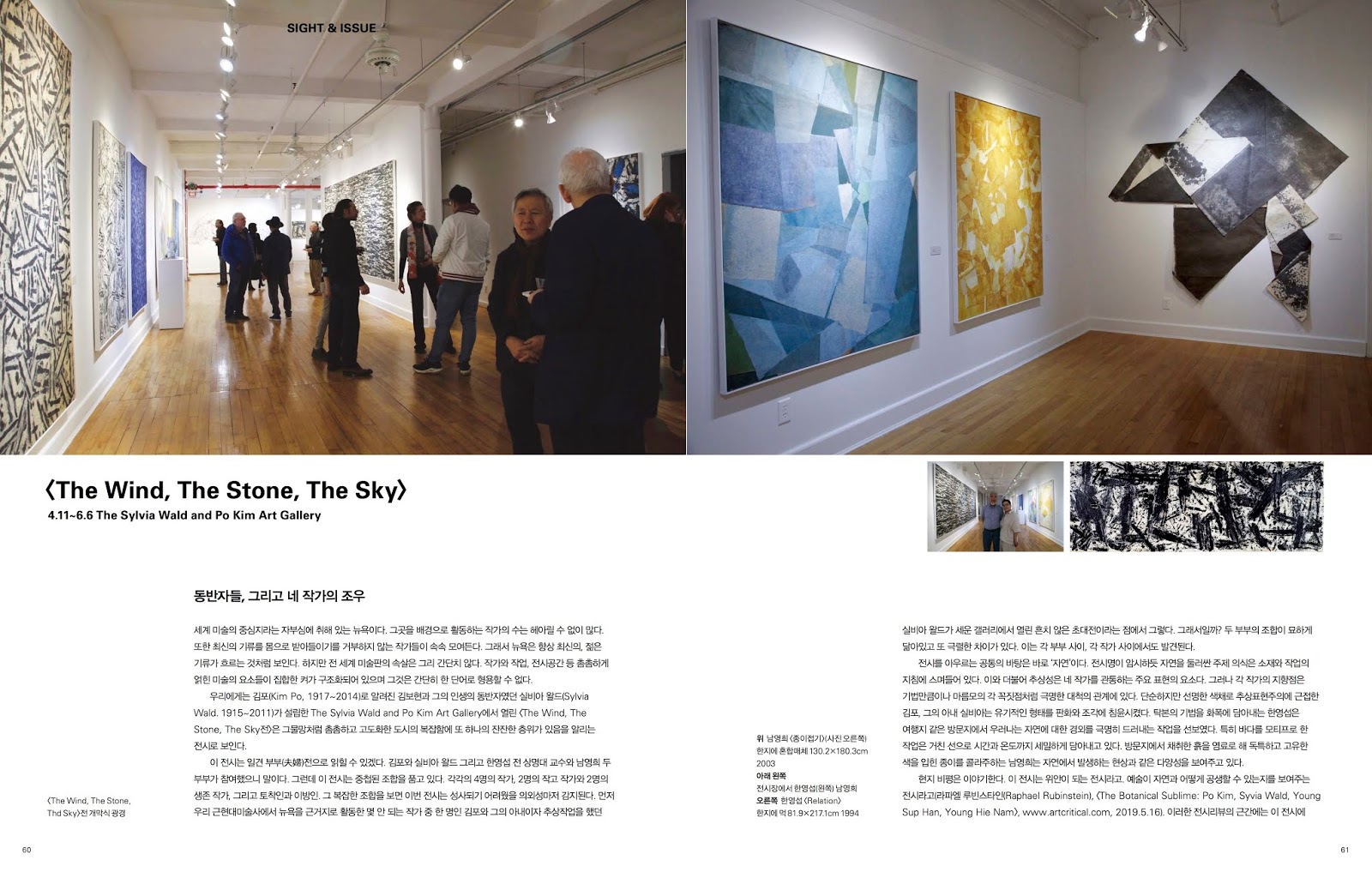PANEL DISCUSSION: MEMORIES IN TIME AND SPACE
Thurs, Sept. 26, 2019 | 6:30 PM
Join us for a panel discussion with Richard Vine (Managing Editor of Art in America), Carol Parkinson (Executive Director of Harvestworks), Daniel Palkowski (composer and digital sound specialist) and Hahkyung Darline Kim, moderated by Raphaele Shirley (multimedia artist).
Within the context of the Korean Media Arts Festival exhibition Technoimagination: Memories in Time and Space, the panel will explore the relationship of time, space, memory and history and the ways in which artists use traditional and new media to re-evaluate our understanding of collective and individual memories.
ABOUT THE EXHIBITION
TECHNOIMAGINATION: MEMORIES IN TIME AND SPACE
The exhibition Memories in Time and Space is presented in two parts across SWPK’s 4th and 5th floor galleries. On the 4th floor, Memories in Time and Space I features works by Cheol-Woong Sim , Chan Sook Choi, and Hahkyung Darline Kim, in which the artists reveal the story of the modernization of Korea—with its distortions, lost identities of evicted migrants, and forgotten memories of marginalized groups during the War.
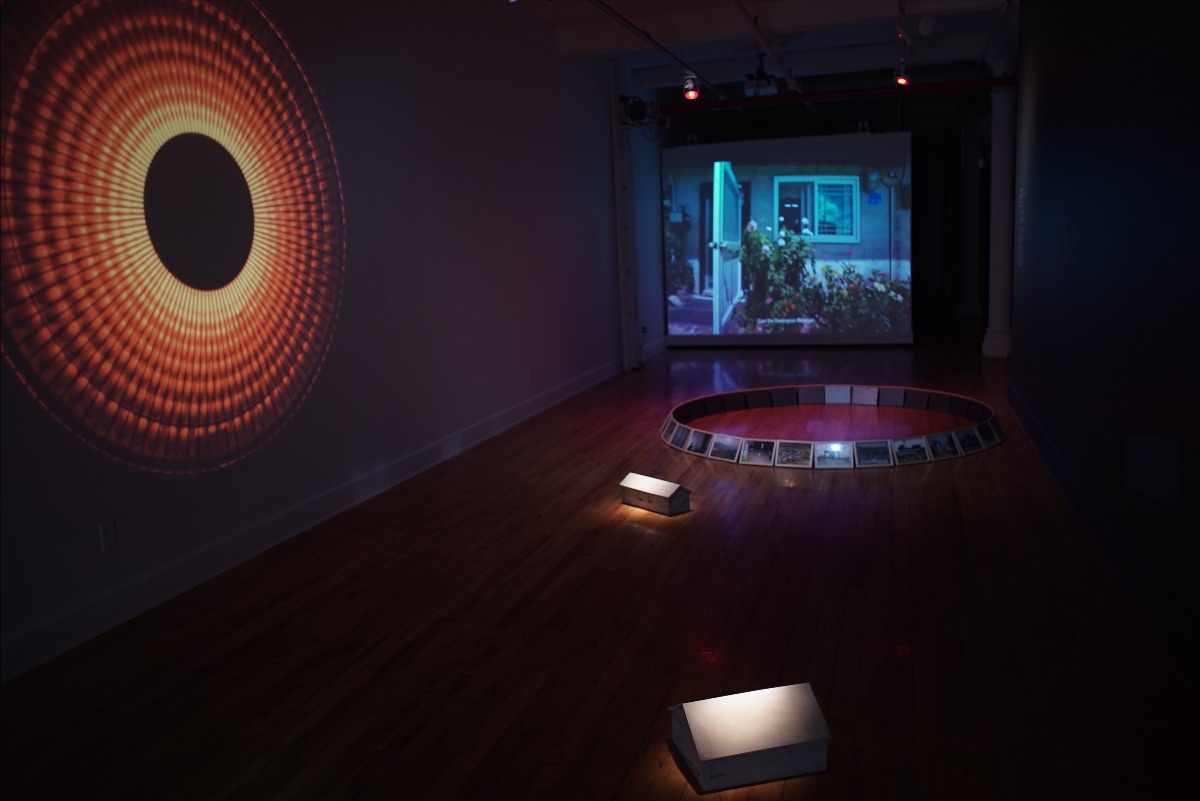
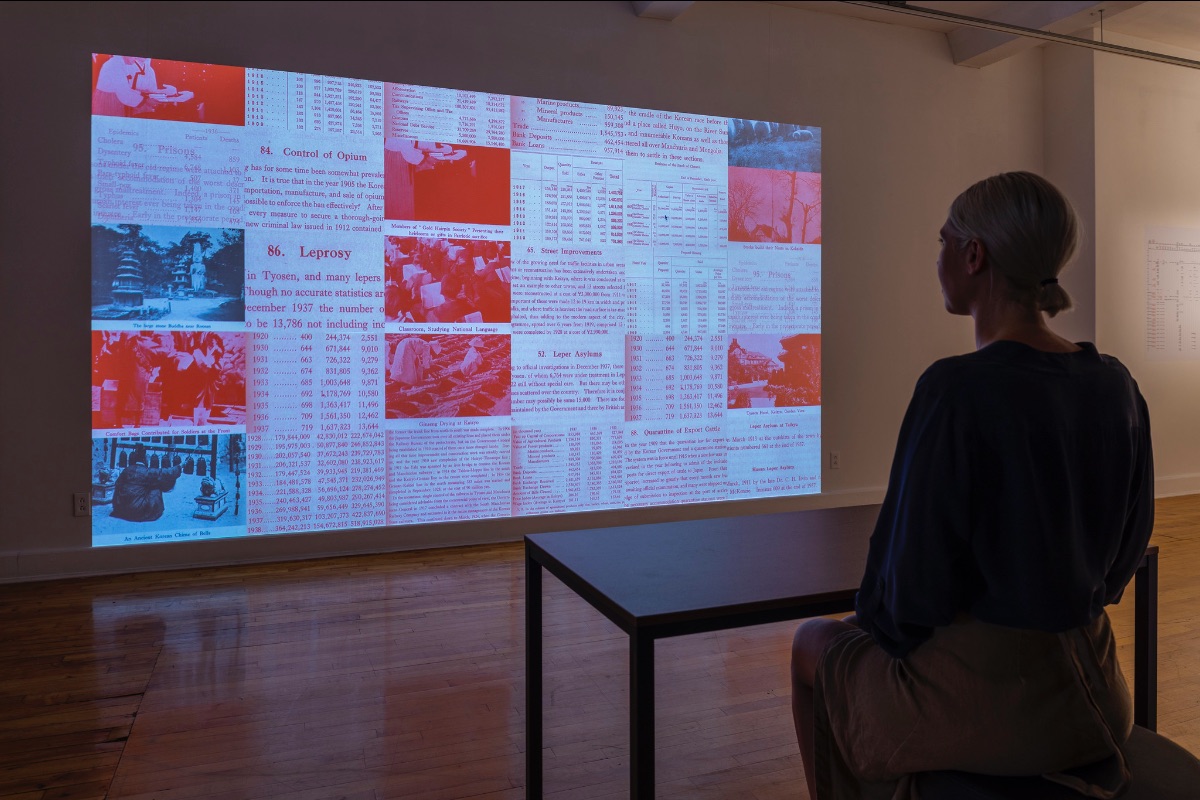
Cheol-Woong Sim, through his interactive installation, exposes the historical distortions and propaganda latent in the English Almanac of the Chosen Government General. Chan Sook Choi reflects on the narrative of the displaced migrants of the village of Yangjiri, a community built for propagandistic purposes towards North Korea. Hahkyung Darline Kim reveals the lost memories of those marginalized during the Korean War. These memories of the past fluctuate between history and post-history as the viewer experiences them within the space-time of technoimagination.
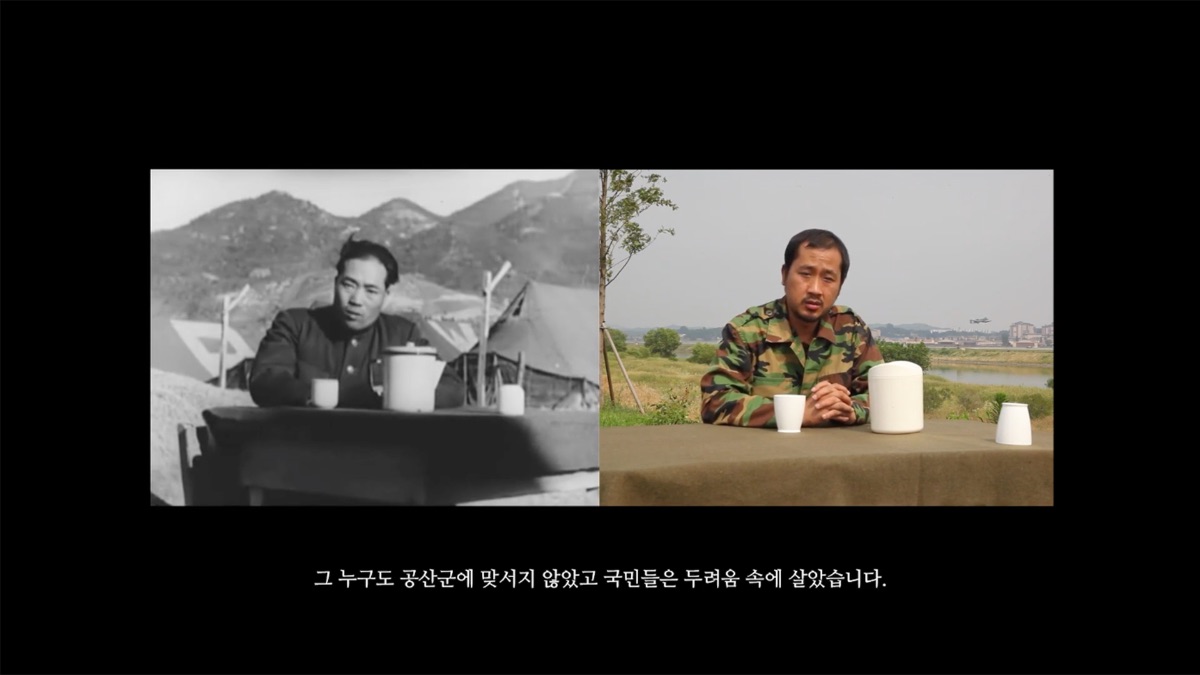
On the 5th floor, a different Memories in Time and Space II is presented. Beikyoung Lee’s Thoughtful Space brings the viewer into the abstract and transcendental space-time between actual and virtual realities. In transcendental space-time, sensory memories extend the limitations of the world in which we exist.

ABOUT THE KOREAN MEDIA ARTS FESTIVAL
Technoimagination, the theme of the Korean Media Arts Festival 2019, introduces to New York the unique situation and characteristics of media art in Korea, as a leader of IT, in a post-media or post-digital contemporary art era. Presented at The Sylvia Wald & Po Kim Gallery (SWPK) are the exhibition sub-themes Technoimagination: Memories in Time and Space and Technoimagination: Living Data, featuring works by Chan Sook Choi, Yoon Chung Han, Haru Ji & Graham Wakefield, Eunsu Kang & Collaborators, Hahkyung Darline Kim, Beikyoung Lee, and Cheol-Woong Sim.The Korean Media Arts Festival 2019 is organized by the Donghwa Cultural Foundation, sponsored by the Korea Foundation, and presented in collaboration with SWPK and Harvestworks. Technoimagination has been co-curated by Odelette Cho of SWPK and Kyung Ran Joo of FUSE Art Project.
More information online at www.kmaf.us




